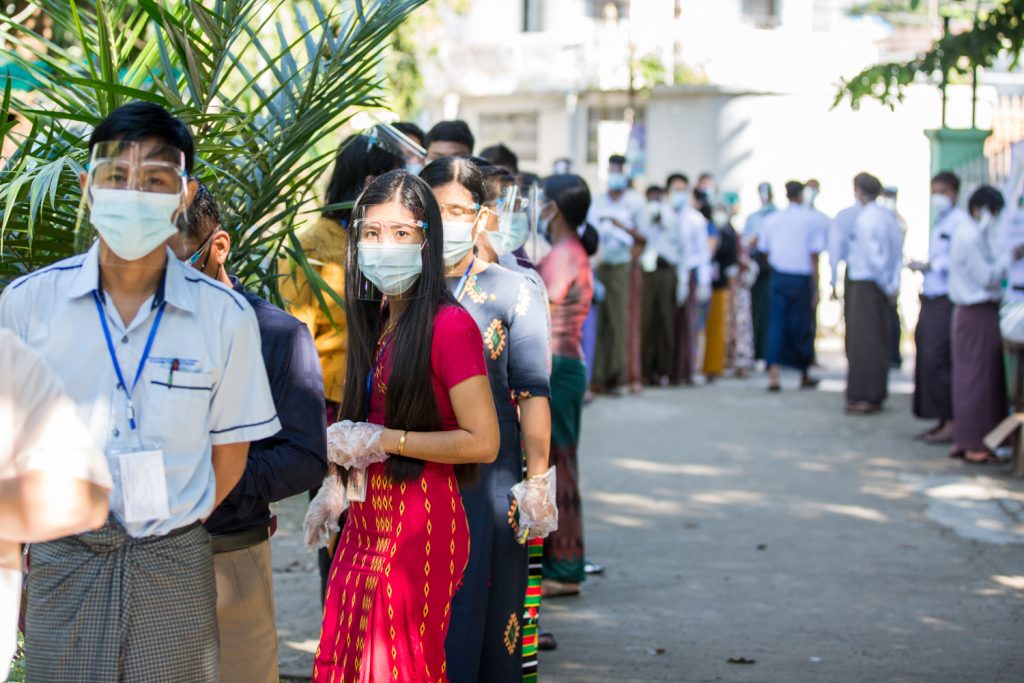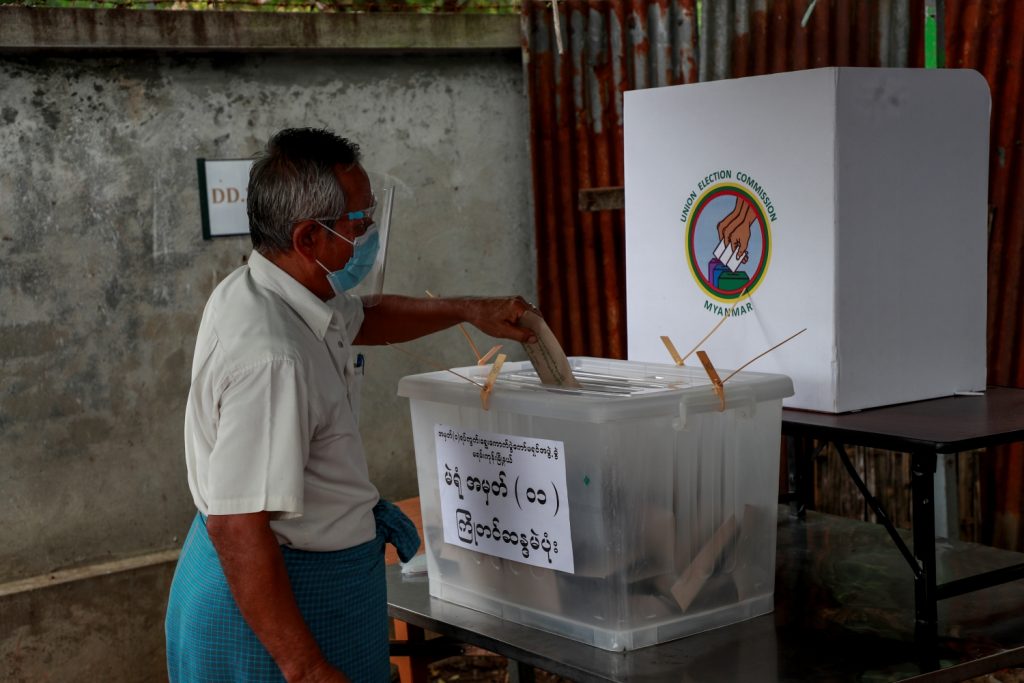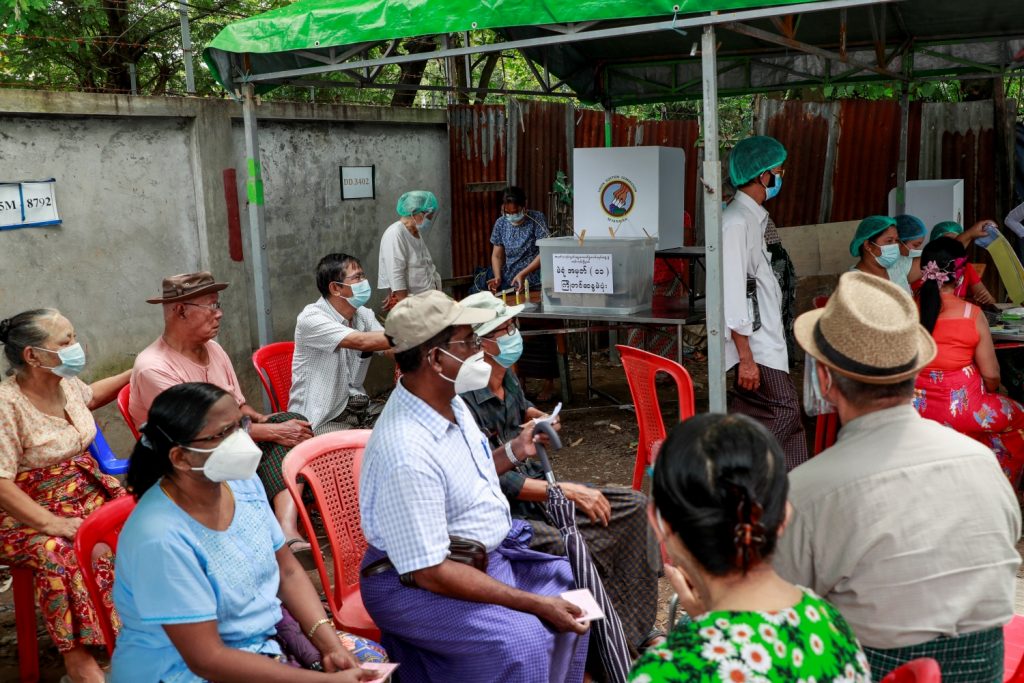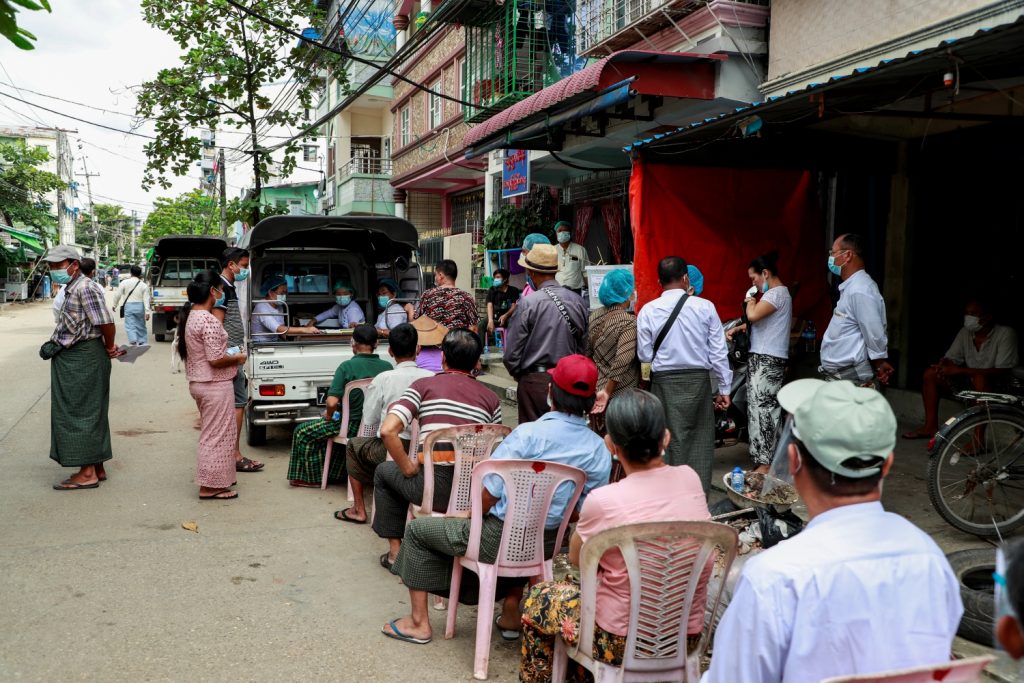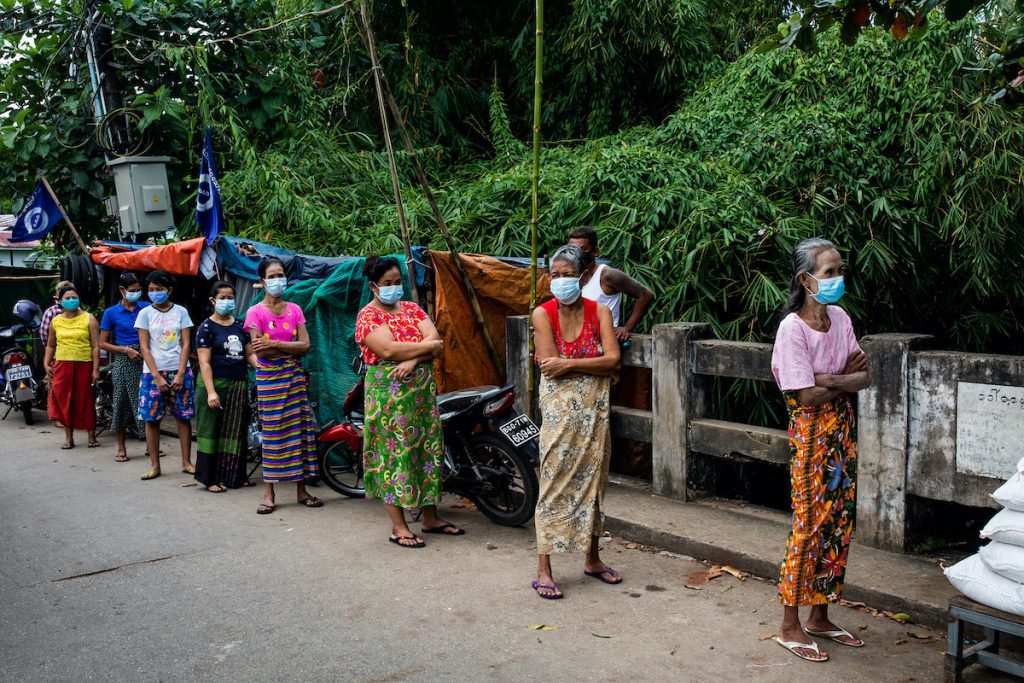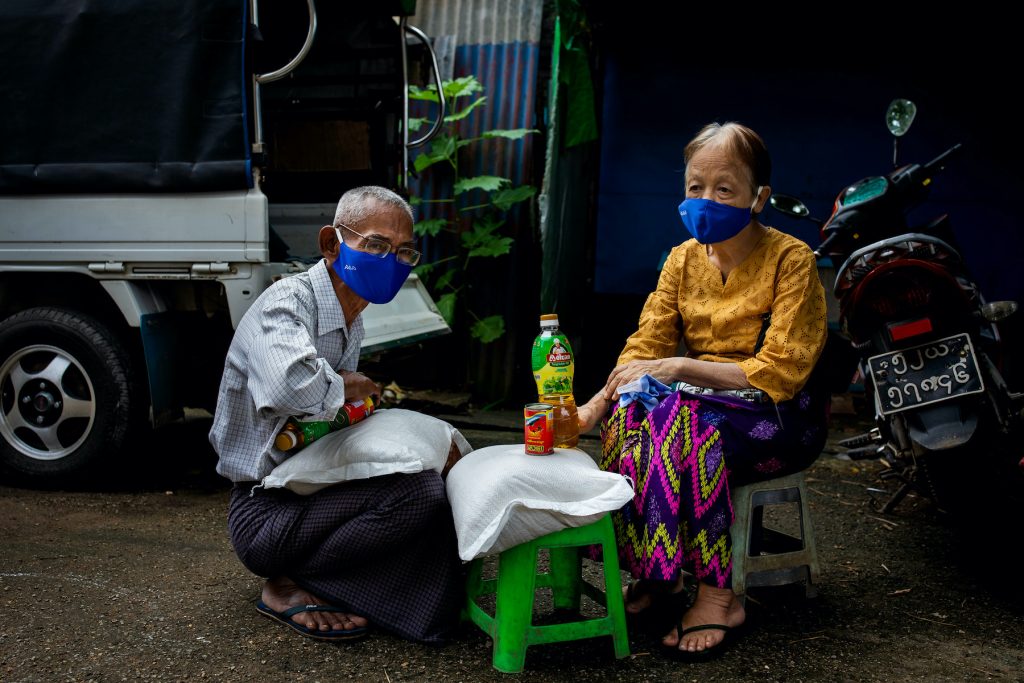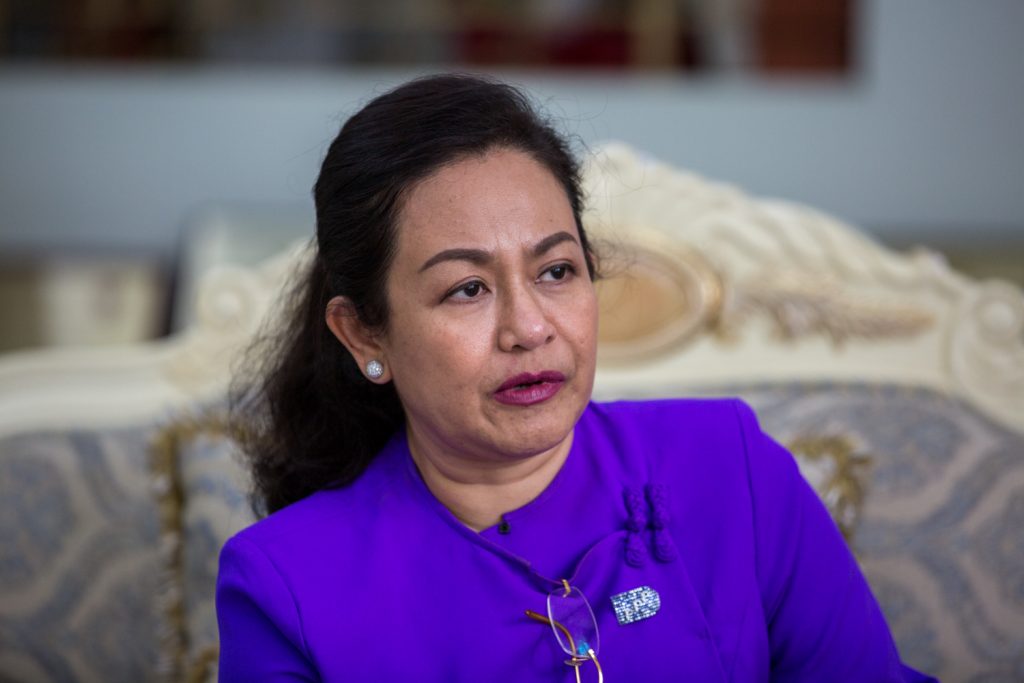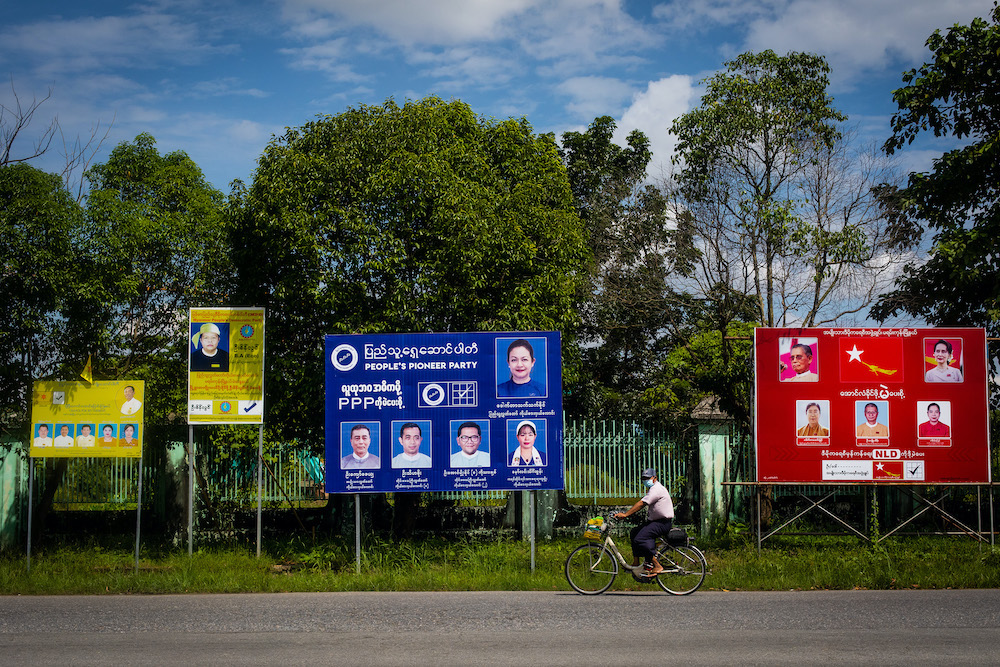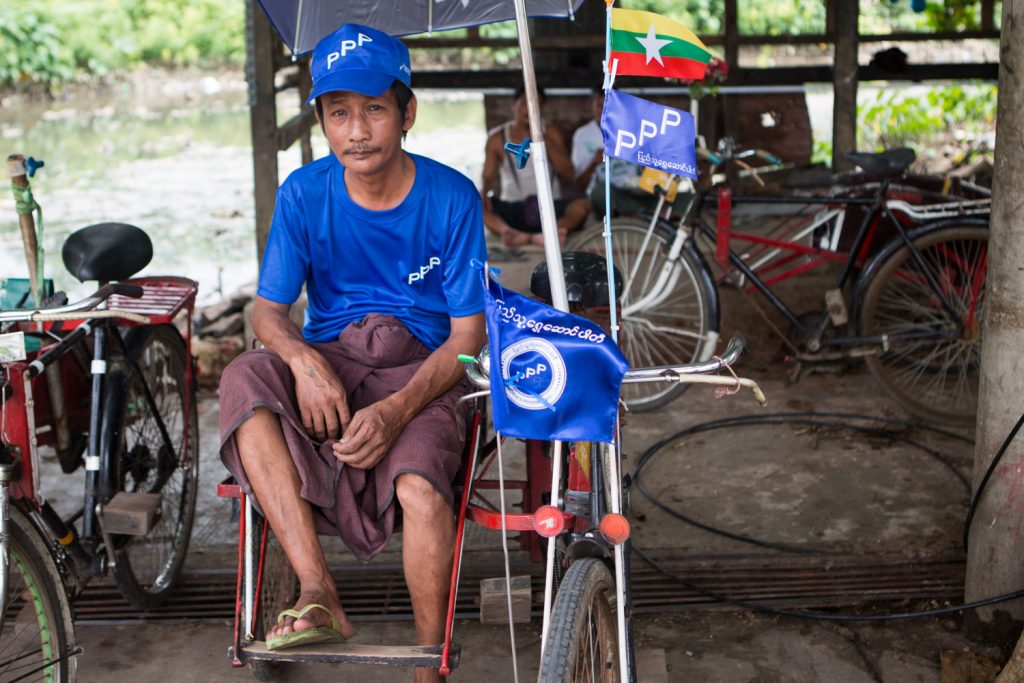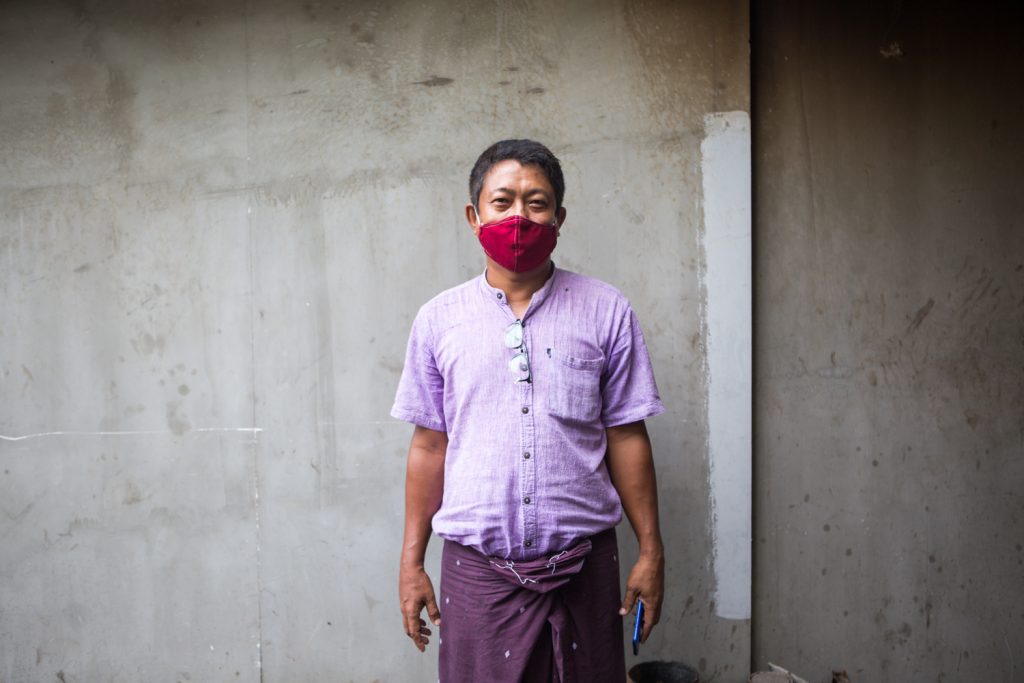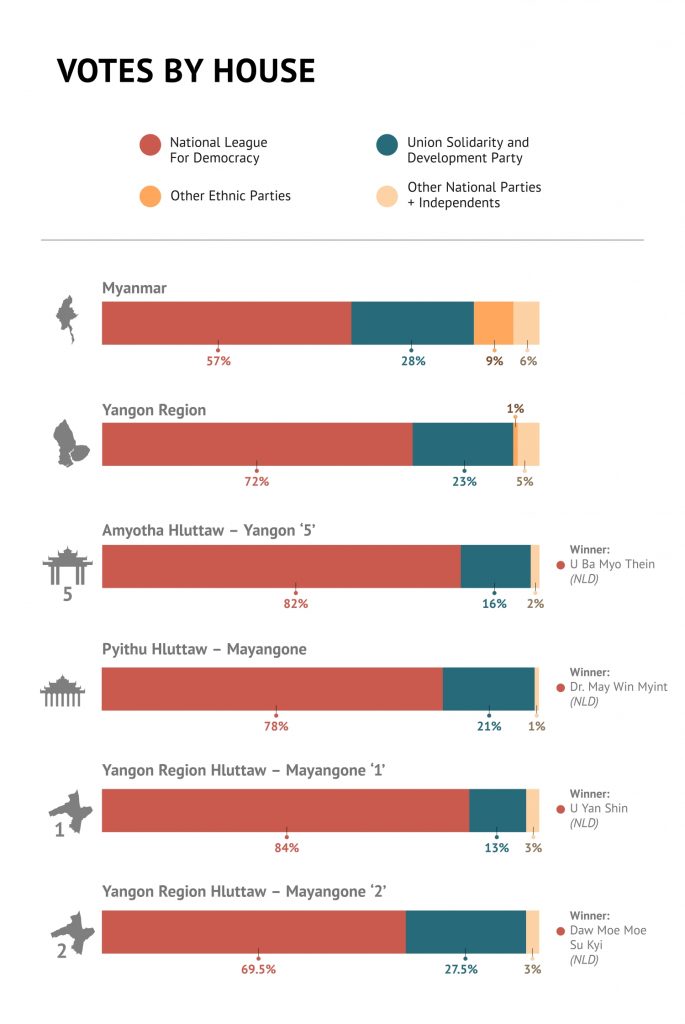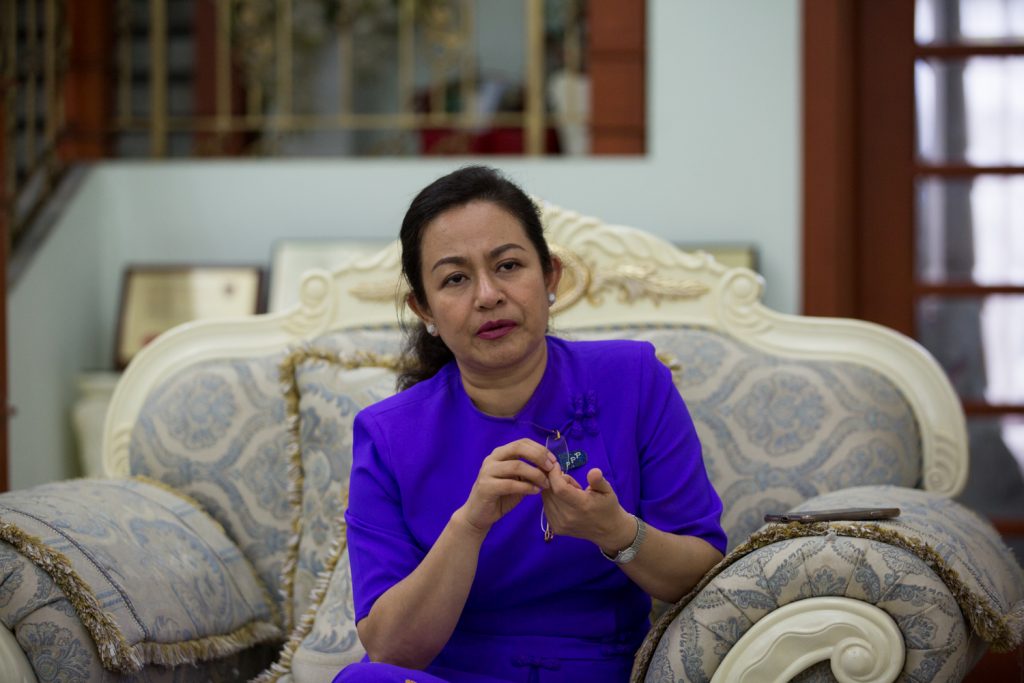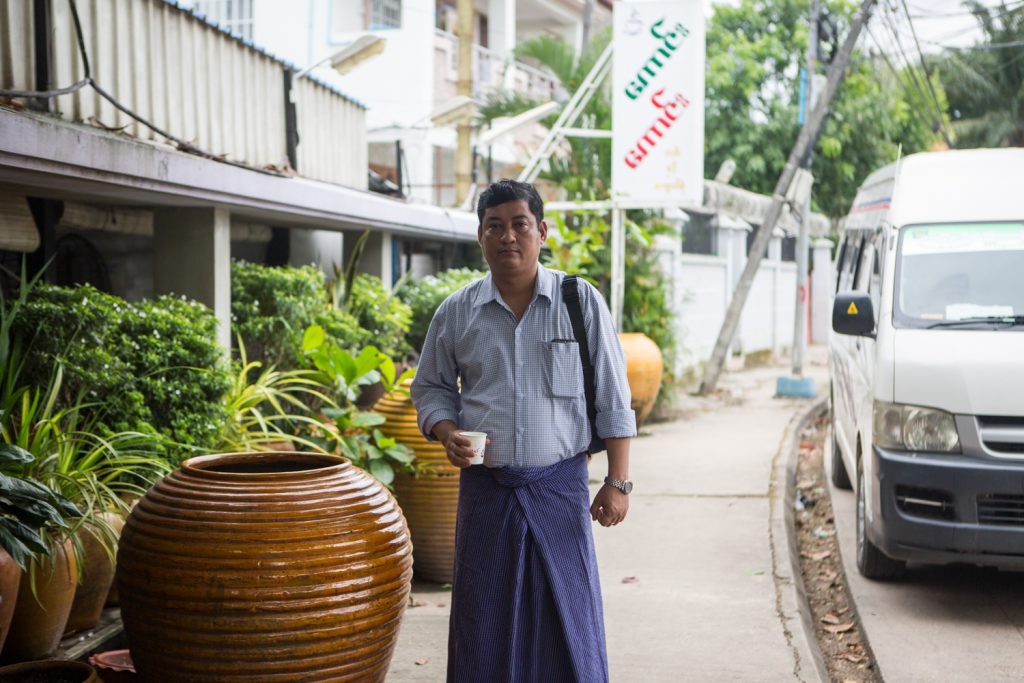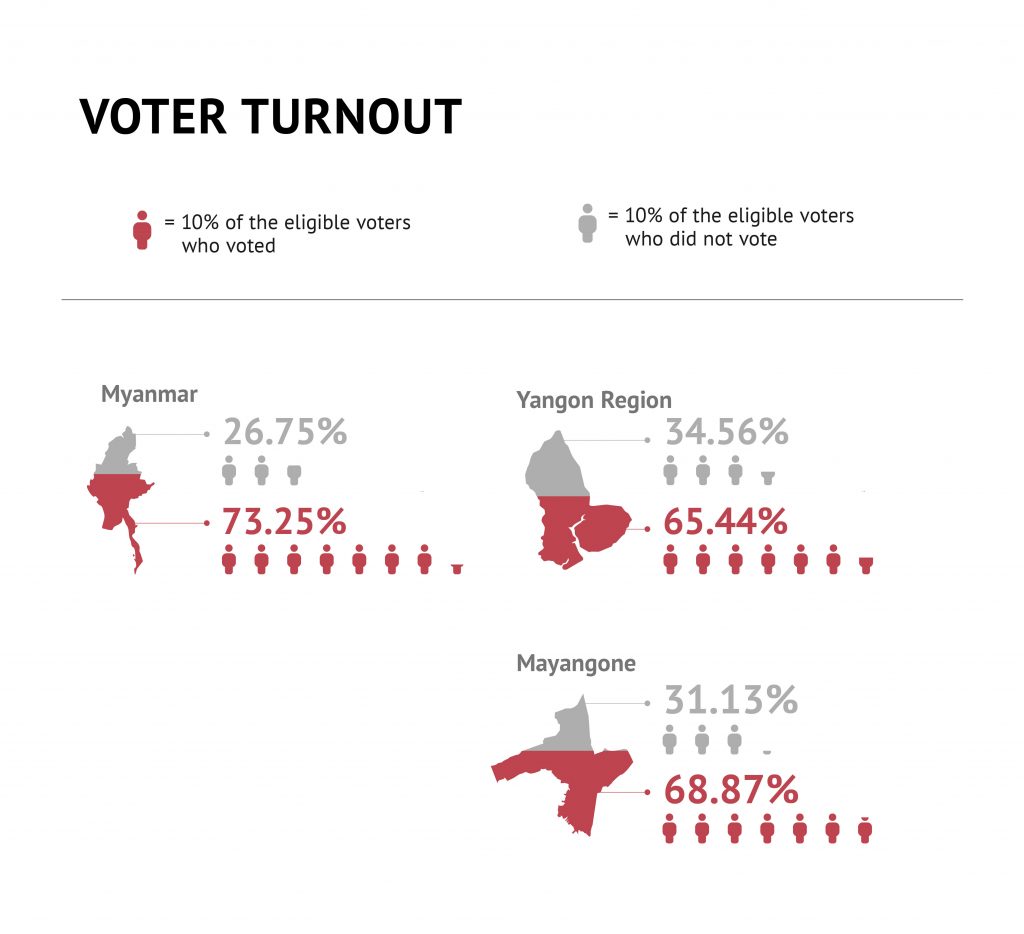Residents in one of Yangon’s largest constituencies are urging the ruling party to use its powerful mandate to provide work for young people, and to deliver more urban development.
This is the final article about Mayangone in Frontier’s Tale of Five Elections series. We have followed the election in five townships across the country, capturing events and local voices through the contest and its aftermath. Scroll down for the first three articles on Mayangone.
By YE MON | FRONTIER
Like most in Yangon’s Mayangone Township, local resident Ma Nwe Nwe Win was pleased with the National League for Democracy’s resounding victory, both there and nationwide, on November 8.
“Before the election, I believed that the NLD would win again in Mayangone Township, and it happened,” the 22-year-old first-time voter said.
The party didn’t just win the township – one of Yangon’s largest, stretching from the Hlaing River in the west to the Pazundaung Creek in the east and home to almost 200,000 people – it did so resoundingly, taking all available seats: the Pyithu Hluttaw, two in the Yangon Region Parliament and the Amyotha Hluttaw seat of Yangon-11, which includes several other townships. Nationwide, it won more than 80 percent of elected seats in the Pyidaungsu Hluttaw, Myanmar’s Union parliament.
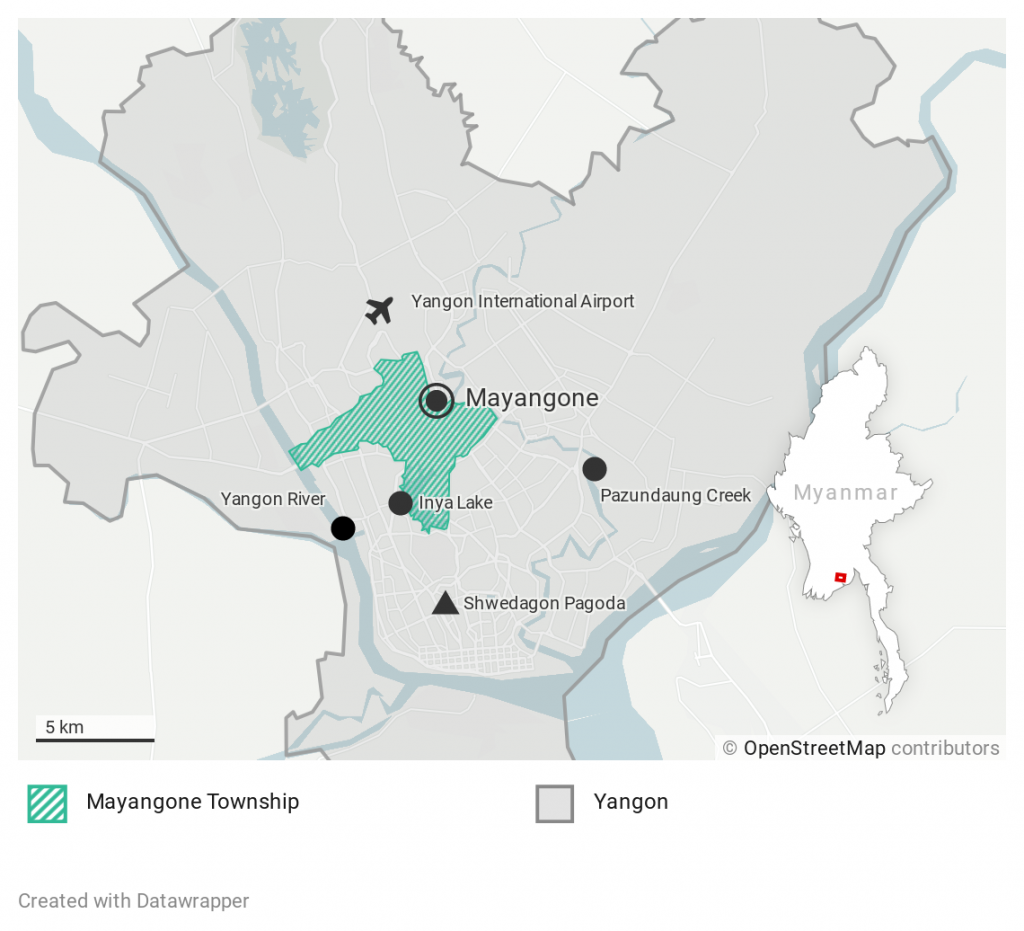
The victor in the Pyithu Hluttaw battle, the NLD’s Daw May Win Myint, received more than 80pc of the almost 110,000 votes cast. She was followed by U Min Thein of the Union Solidarity and Development Party, with under 10pc. The NLD also comfortably won the two regional parliament seats, with almost 90pc in constituency 1 and 76pc in constituency 2.
Nwe Nwe, who works for a recruitment company in the commercial capital, now hopes the ruling party uses its second term to focus on providing jobs for young people.
“Most young people find it difficult to get jobs, so the NLD needs to solve this issue within the next five years,” she said. “Young people need jobs to survive.”
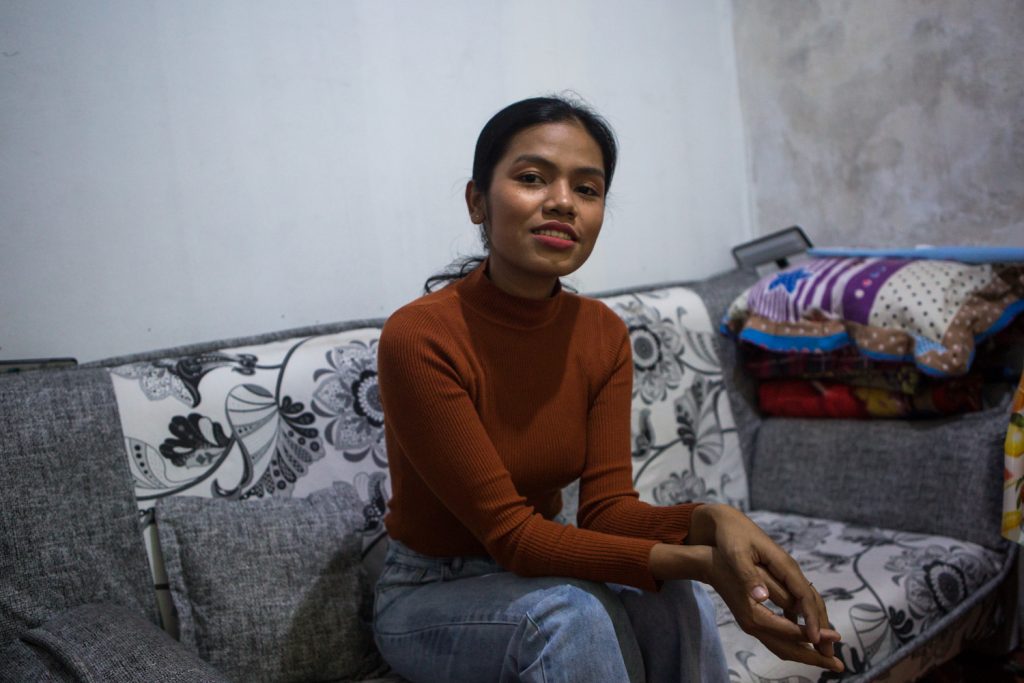
Similarly, Ko Kyi Wai Lin, 44, who runs a car rental service in the township, told Frontier that he had queued for almost two hours on election day to vote for the NLD, and said he hoped they would focus on boosting the economy and creating jobs, especially for young people.
“If there are a lot of job opportunities, people’s quality of life will improve,” he said.
Kyi Wai Lin said he thought the ruling party performed well in their first term and believes their approach to urban planning was an improvement on the previous USDP administration.
“Flooding is still a problem in rainy season, but I expect that MPs and the new regional government will focus on city development in Yangon,” he said, adding that he believed the NLD conducts projects out of “goodwill” for the people.
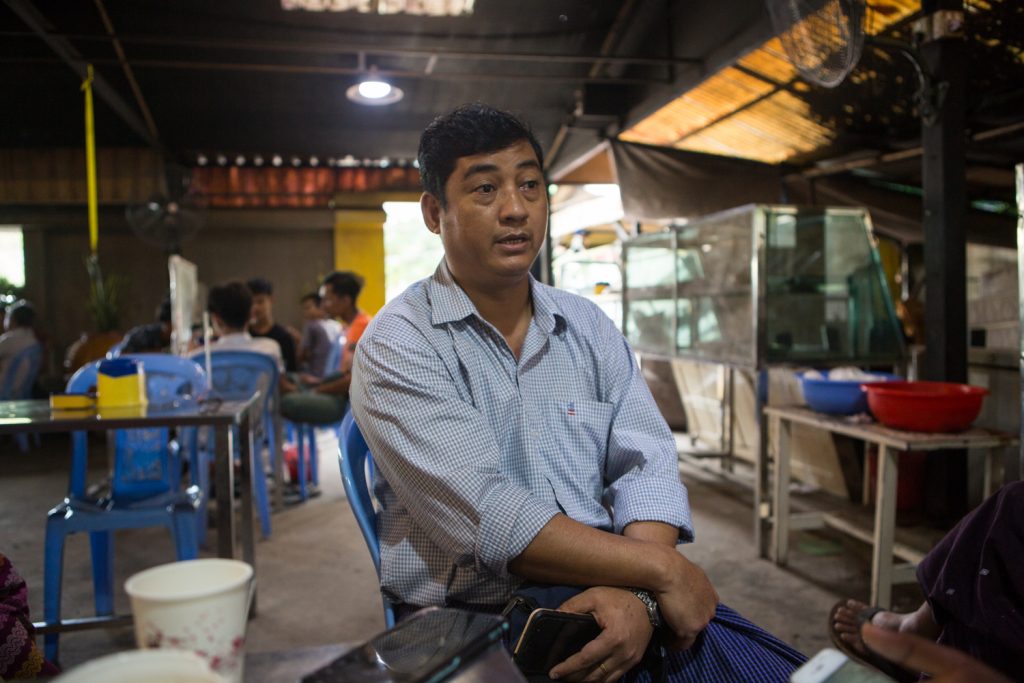
The NLD certainly has MPs in Mayangone with the necessary experience to get things done – most notably the re-elected Pyithu Hluttaw representative May Win Myint, 70, a member of the party’s Central Executive Committee. She ran successfully for the party in the 1990 general election, an NLD victory famously ignored by the ruling military junta, as well as in the 2012 by-elections and 2015 general election.
May Win Myint did not respond to a request for comment from Frontier on her election victory, but the day after the vote she wrote a post on her Facebook page thanking those who voted for her, and promising to fulfil her “responsibilities to the people”.
The vote in Mayangone attracted attention in the build-up due to the presence of Daw Thet Thet Khine, the Pyithu Hluttaw candidate for the People’s Pioneer Party, which she co-founded last year. A year earlier, she had quit the NLD after it suspended her for criticising the leadership style of party leader Daw Aung San Suu Kyi. Thet Thet Khine performed poorly in the election, however, ranking third behind the NLD and the USDP and capturing just over 7pc of the vote.
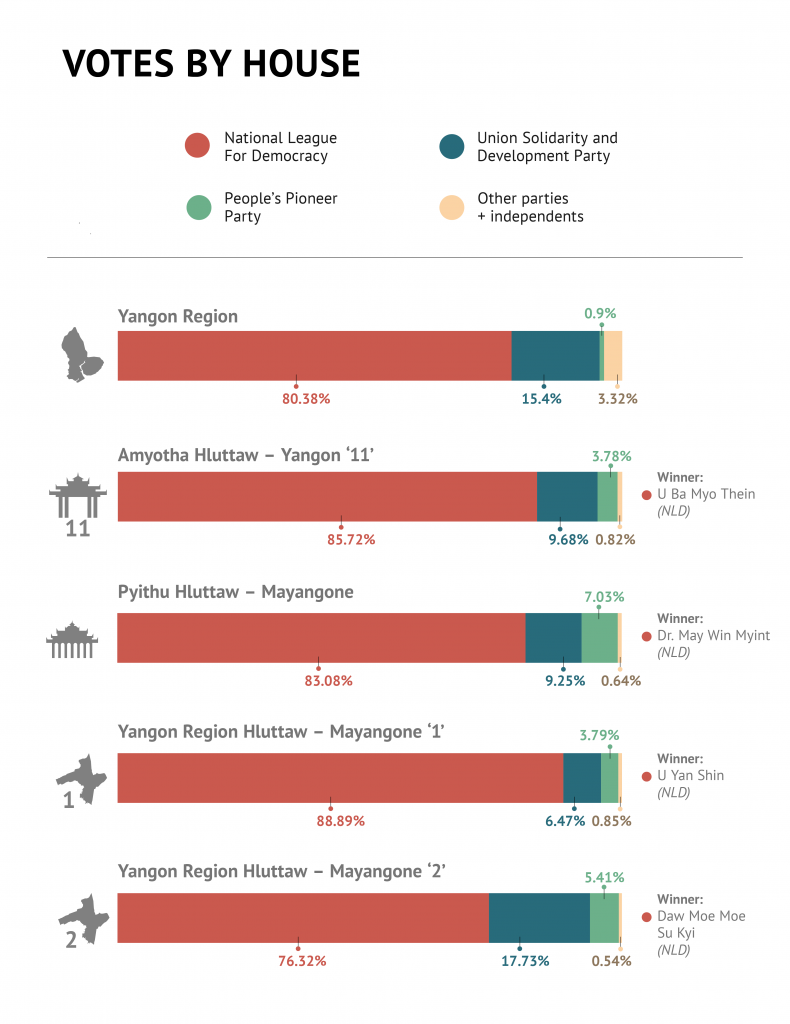
Speaking to Frontier on November 11, Thet Thet Khine congratulated the NLD on their victory but expressed concern about how free and fair the vote was compared to the previous election. She said election observers had been unable to monitor the ballot printing process, to know the exact number of ballot papers, while the COVID-19 pandemic had also meant that parties were unable to check voter lists as closely as they otherwise might, which may have allowed many of the errors in the lists to go uncorrected.
“We also heard that voters older than 60 could not vote in private in some places,” she said, referring to the fact that when elderly voters were permitted to conduct early voting from their homes due to health concerns, they did so in the close presence of election officials.
While some international monitors have pointed out flaws in the country’s electoral laws and examples of discrimination, most described a largely clean vote on election day.
Thet Thet Kine said she believed the NLD won more because of name recognition than their policy platform, adding that it was harder for smaller parties like hers to spread their message due to stay-at-home orders to contain the health crisis, which have been in place across Yangon and in badly affected areas elsewhere in the country since September.
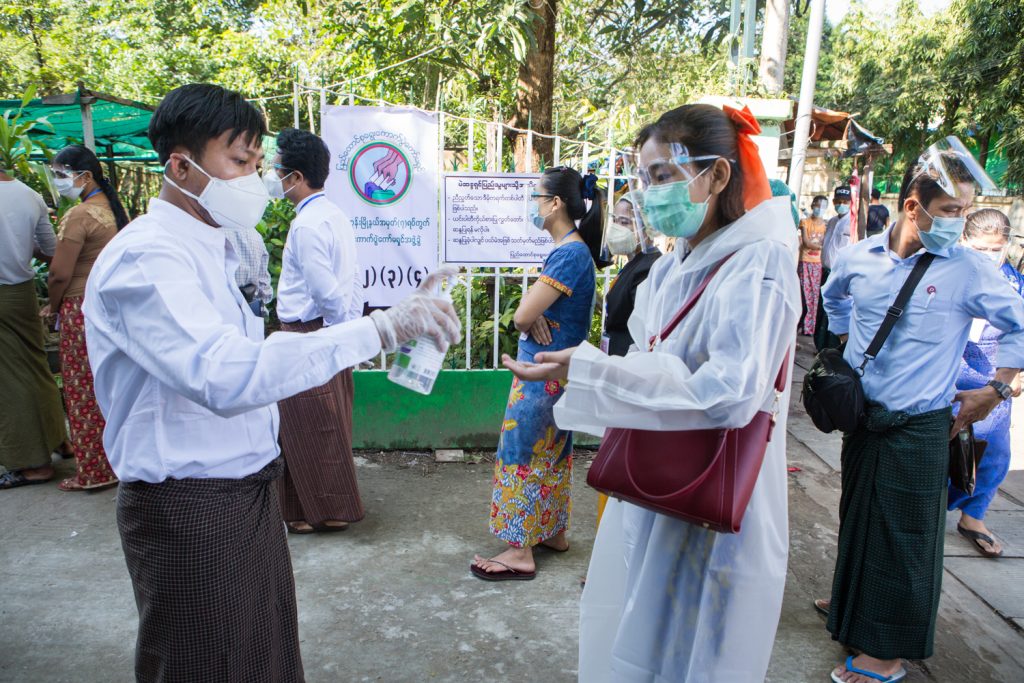
COVID-19 caused other problems in the township. Its sub-election commission was criticised after more than 280 eligible voters in quarantine at the Inya COVID-19 Centre in Mayangone were unable to vote because their advance ballots did not arrive in time.
During a speech on state television the day after the vote, State Counsellor Daw Aung San Suu Kyi apologised to those unable to vote due to the COVID-19 restrictions, saying the government had been unable to make arrangements for those taken to hospitals or quarantine centres just a few days before the election.
U Kyaw Kyaw Win, chair of the Mayangone Township election sub-commission, told Frontier on November 11 that his office had faced delays in receiving the relevant ballots from other sub-commissions in townships where the quarantined voters were registered.
Because many of them would be voting outside their constituencies, different sub-commissions needed to coordinate closely within a short space of time, leading to mistakes.
Kyaw Kyaw Win said many of the ballots had not been prepared for collection when, “two days before [the election], I went to some township election sub-commissions to collect the ballot papers and take them to the centre myself”.
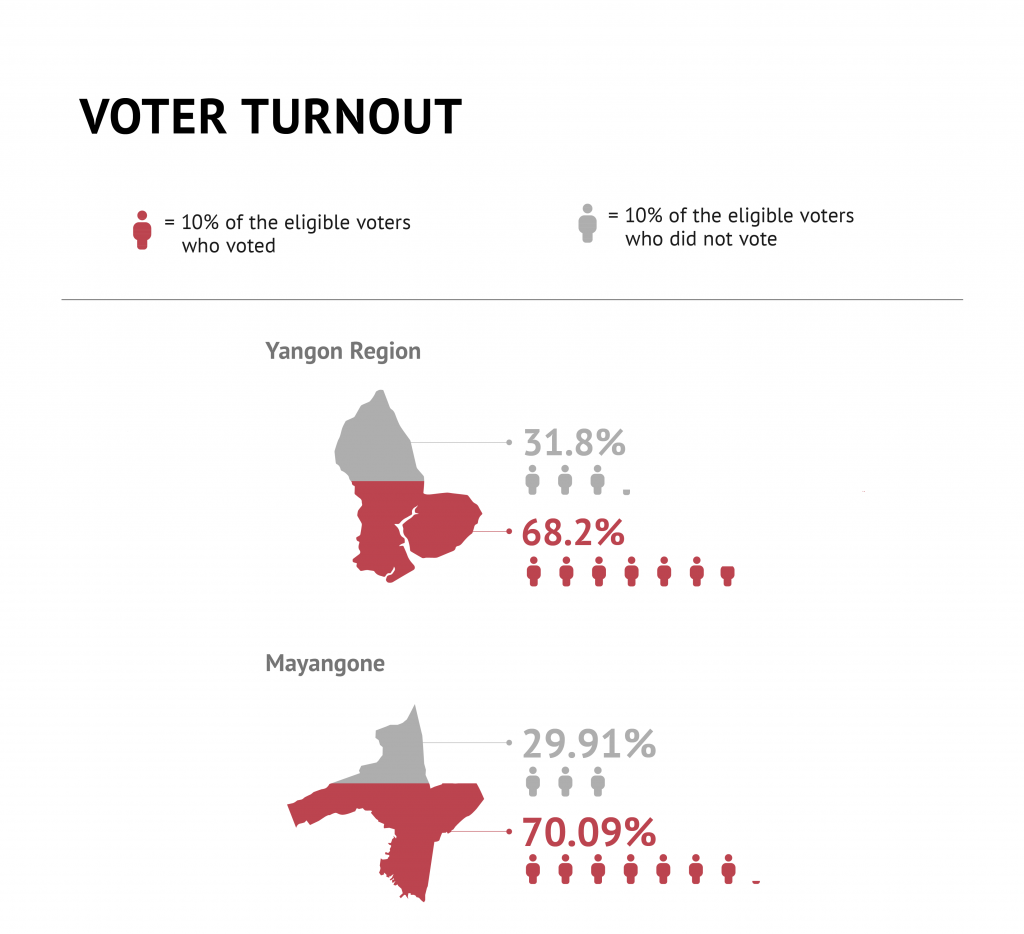
Mayangone has also been the scene of a seemingly futile stand taken by the defeated USDP. U Nyaw Win Htike, the party’s candidate for the Yangon-11 Amyotha Hluttaw seat, which includes Mayangone, refused to sign the results sheet, known as From 19, which signals acceptance of the outcome in a constituency but is not required for results to be certified.
Unsuccessful USDP candidates across Myanmar also refused to sign their results sheets, following central party orders. Apparently borrowing from the playbook of outgoing United States president Donald Trump, the USDP has refused to acknowledge the NLD’s victory, accusing the NLD of vote buying and cheating during the advance voting process, among other things. It has called for the election to be re-held with Tatmadaw assistance, but the military has disassociated itself from the USDP’s stance and refused to intervene.
Township sub-commission chair Kyaw Kyaw Win said he was unconcerned by the USDP’s accusations. “We can’t handle this kind of issue. It should be sent directly to the UEC,” Kyaw Kyaw Win said.
He was referencing the formal process for post-election disputes, in which aggrieved candidates and voters have 45 days from the declaration of results to file challenges with the Union Election Commission. On payment of a K500,000 filing fee, the UEC appoints a tribunal that, after hearing evidence in sessions lasting months, has the power to deprive elected an MP of their seat and hand it to the runner-up in the race.
“We do not have bias, and we don’t care if people criticise us,” Kyaw Kyaw Win said. “I don’t support any party.”
“We believe in what we did, and God knows it.”


